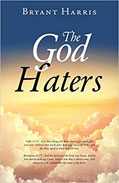
 |
Anything less than unwavering, selfless, devoted love constitutes hatred. The Bible asserts that to love God and others less than one should is to hate them. To hate someone is the same as murdering that individual, according to the Apostle John. In his first letter to them, the Apostle Paul tells the wayward and lackadaisical Corinthian church members that the halfhearted practice of their Christian faith clearly shows their hatred for God since they love God less enthusiastically than they should. In that letter's thirteenth chapter, Paul explains to them the attributes that perfect, sufficient love on their parts would include. He describes such love as patient, kind, humble, forgiving, self-controlled, hopeful, loyal, and desirous of finding the truth.
But this imperfection of love began millennia before the early Church. It started in Eden with Adam and Eve when they ate the fruit from the Tree of the Knowledge of Good and Evil, thus breaking their covenant with God. Knowing good from evil, they loved God and each other less than God, or they themselves, deserved. Therefore, they hated God and each other, as is evident from Adam's blame of Eve and her subsequent blame of the serpent for the disobedience that precipitated their exile from Eden. Had they loved each other perfectly, Adam and Eve would each have accepted responsibility for their individual wrongdoings. After all, created in God's image, every human has the innate right to be loved to the utmost, the same right that God enjoys.
Harris has been an ardent Christian since 1977. Ever since, he has seen himself as a prophet to various Christian denominations. This book's thought-provoking contents arose from his deep meditation on scripture, usually in the quiet of the early morning. Harris published the text with the altruistic goal of donating the proceeds from the sales to help pay a friend's critically ill young daughter's medical bills. Throughout the book, the toddler receives frequent mentions as an example of God's capacity to heal the physical body. Many of the quoted Bible verses that discuss healing of the spirit can also be applied to physical recovery. Harris adroitly uses them in that context to illustrate God's healing power for the little girl. He also shows that because a child's suffering and innocence are universally relatable, this healing power is there for all people. Harris repeatedly offers gentle reminders that Christians are to hate sin but still love the people who sin.
The author readily admits that this text is intensely theological in tone, and those in positions of church leadership, especially those who teach student pastors, comprise its intended readership. Therefore, there is a greater emphasis on quotations from scripture than on the sort of commentary one finds in a layperson's study guide. His book could easily function as a textbook for seminary students, perhaps alongside such publications as Gordon D. Fee's classic New Testament Exegesis: A Handbook for Students and Pastors. Harris' love of scripture is abundantly apparent in his frequent quotation of long biblical passages. Any pastor or seminary student who shares his affinity will enjoy reading his insights into the true nature of divine love.